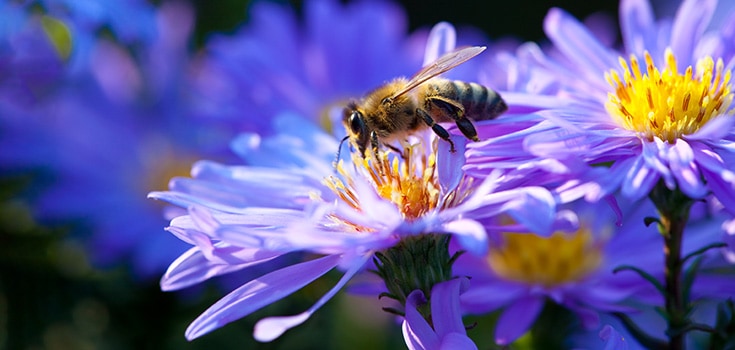Study Proves Bee Decline Linked to Top Insecticides

Already being ravaged by pesticides that are ignored by the USDA, a new study confirms that the bee population decline is also linked to corn insecticides that are among the most widely used in the world. The study sheds more light on the rampant downfall of the bee population through mass die-offs, also known as colony collapse disorder.
Used to coat corn seeds, the chemicals — known as neonicotinoid insecticides — are used to kill the insects by paralyzing their nerves. The makers claim that it has ‘lower toxicity’ for other animals. The study, entitled “Assessment of the Environmental Exposure of Honeybees to Particulate Matter Containing Neonicotinoid Insecticides Coming from Corn Coated Seeds,” was published in the American Chemical Society’s Environmental Science & Technology journal. The researchers note that an increase in bee deaths began to be observed as soon as the insecticide was put into use.
The way in which bees are affected by this insecticide has to do with how the particles of the substance release into the air. The process involves pneumatic drilling machines, which suck in the seeds and subsequently spray and coat them with the insecticide before they are planted in the ground. As a result, particles of the insecticide are released into the air which then affect the honeybees. Even after examining how to potentially make the machines safer in any capacity to prevent the bee die-off, scientists said that all variations using the neonicotinoid insecticides still led to mass bee death.
The integrity of the entire ecosystem is at risk if the honeybee population is not stabilized. Integral for the pollination of food crops, these insecticides are threatening the future of agriculture and global food sustainability. The researchers also mention that corn is increasingly being used as a form of renewable energy, and that real changes need to be made regarding the use of neonicotinoid insecticide before it is too late.
The researchers state:
“In view of the currently increasing crop production, and also of corn as a renewable energy source, the correct use of these insecticides within sustainable agriculture is a cause of concern.”
